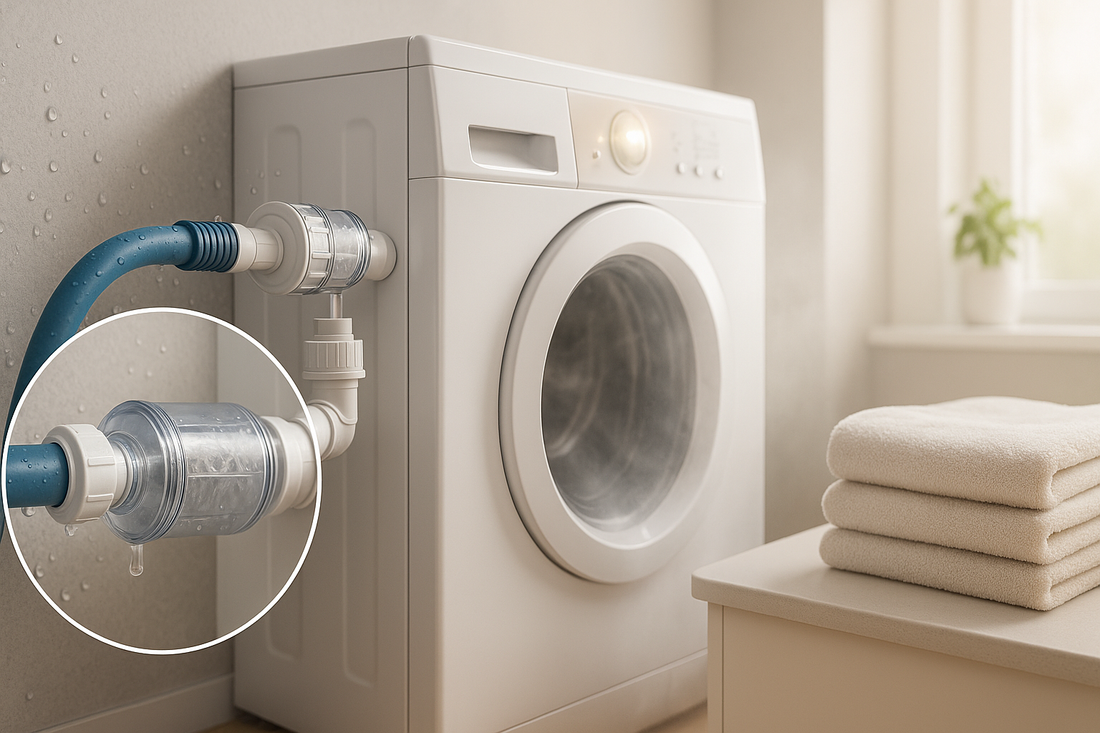
How a Washing Machine Filter Can Prevent Hard Water Damage and Save Your Appliance
Share
Hard water is a silent destroyer in many households. While it might not seem like a big issue at first, its long-term effects can severely damage appliances—especially your washing machine. One of the most effective and affordable ways to fight back is by installing a washing machine filter. In this blog, we’ll explore how a hard water filter works, the kind of damage it prevents, and why it’s a smart investment for your home.
Understanding Hard Water and Its Effects on Washing Machines
Hard water contains high levels of minerals, primarily calcium and magnesium. While not harmful to your health, these minerals build up over time, creating limescale deposits that can clog pipes, reduce heating efficiency, and damage internal components of appliances.
Key areas affected in a washing machine:
-
Heating Element: Scale buildup reduces heating efficiency and increases power consumption.
-
Drum and Inner Walls: Limescale settles on the metal surfaces, leading to rust and corrosion.
-
Detergent Efficiency: Hard water reduces the lathering ability of soap, causing residue on clothes and poor cleaning performance.
- Inlet Valves and Filters: Mineral particles clog inlet valves, affecting water flow and eventually causing malfunction.
What Does a Washing Machine Filter Do?
A washing machine filter for hard water is typically installed at the water inlet of the machine. It contains filtering media—most commonly polyphosphate crystals—that soften hard water by neutralizing the mineral content before it enters the machine.
Benefits of Using a Washing Machine Filter:
-
Prevents Limescale Buildup
The filter neutralizes calcium and magnesium ions, preventing the formation of limescale on internal components.
-
Protects Your Appliance’s Lifespan
Regular exposure to hard water can reduce a washing machine’s life by years. A filter helps your machine run longer with fewer repairs.
-
Improves Cleaning Performance
Softened water improves detergent efficiency, helping it dissolve better and clean more effectively. This means brighter, softer clothes after every wash.
-
Reduces Maintenance Costs
By keeping valves, pipes, and heating elements free of deposits, filters reduce the need for professional descaling and part replacements.
-
Compatible with Low Water Pressure Areas
Many filters are designed to perform well even where water pressure is low or water quality is compromised.
Why Choose the Aquera Washing Machine Filter?
The Aquera Washing Machine Filter is specially designed for Indian households dealing with hard water and chlorine-rich municipal supplies. It comes with:
- High-efficiency polyphosphate filtration media
-
Touch control functionality for easy monitoring (on select models)
- Compact and durable housing
-
Universal compatibility with top-load and front-load automatic machines
- Easy installation – no tools or plumbing knowledge required
This makes Aquera an ideal solution for preventing internal damage, reducing soap scum on clothes, and extending the lifespan of your appliance.
Signs Your Washing Machine May Be Suffering from Hard Water Damage
- Clothes coming out stiff, dull, or with white residue
- Machine takes longer to heat water
- Increased power consumption
- Loud noise during spin cycles due to blocked parts
- Frequent service needs or part replacements
If you’ve noticed any of the above, a washing machine filter is no longer optional—it’s essential.
Installation: Easier Than You Think
Most modern washing machine filters, including Aquera’s models, are designed for DIY installation. You simply:
- Turn off the water supply
- Attach the filter at the inlet valve
- Secure it with the included fittings
- Turn the water back on—and you’re ready to go
Filters usually need to be replaced every 6 months for continued effectiveness.
Protect Now, Save Later
A small investment in a washing machine filter today can save you from major repair bills tomorrow. It not only keeps your appliance healthy but also improves your laundry results and reduces power consumption. In cities and towns where hard water is common, installing a filter is no longer a luxury—it’s a smart, preventive move.
So if you're serious about prolonging your washing machine’s life, improving fabric care, and lowering maintenance costs, the Aquera Washing Machine Filter is the solution you've been looking for.
Shop Now:
Explore Aquera Washing Machine Filters →
FAQs
Q1. Will a washing machine filter reduce TDS in water?
No, washing machine filters are designed to neutralize hardness (calcium and magnesium) and reduce chlorine. They do not reduce TDS or turbidity.
Q2. How often should I replace the filter cartridge?
For best results, replace the cartridge every 6 months or earlier if water hardness is very high.
Q3. Can I install the filter myself?
Yes. Aquera filters are designed for easy DIY installation and come with a user guide and required fittings.
Q4. Will the filter affect water pressure?
No. The filter is engineered to work efficiently even in areas with low water pressure.
